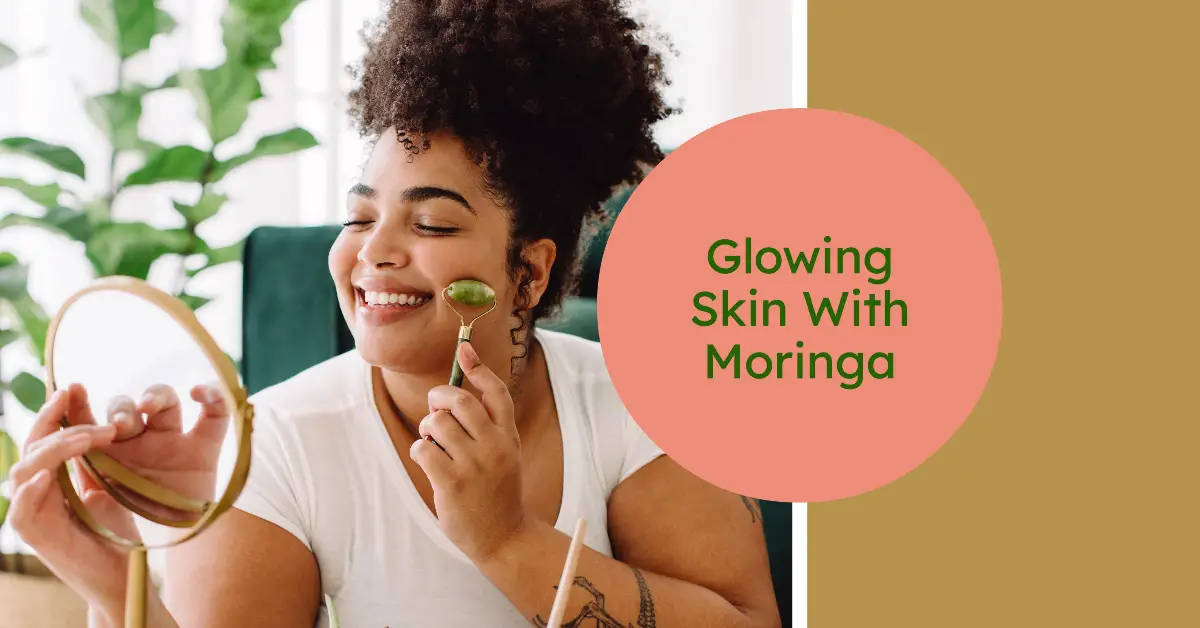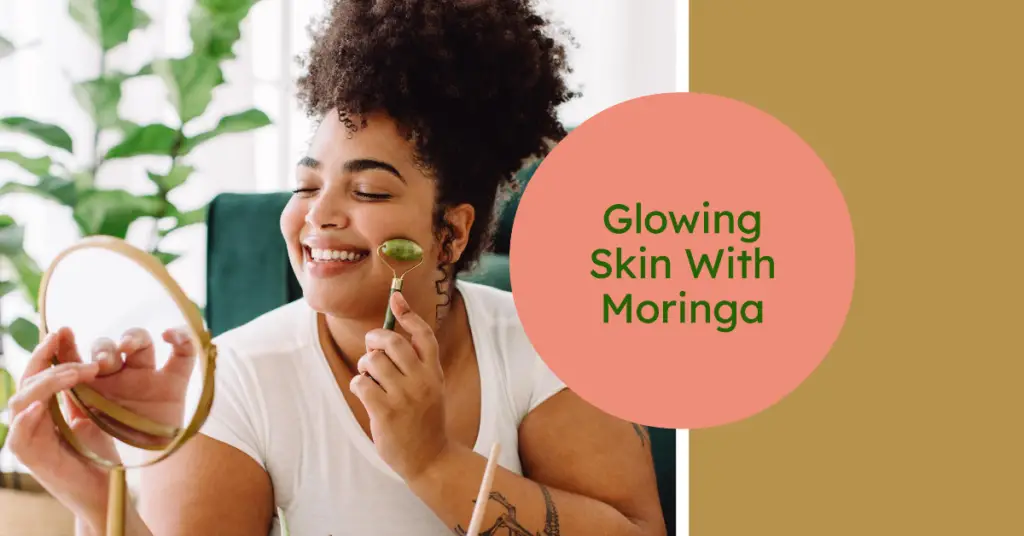
Moringa oleifera, also known as the drumstick tree, is a plant that is native to India and Southeast Asia. It has been used for centuries in traditional medicine to treat a variety of ailments. In recent years, moringa has become increasingly popular as a superfood due to its high nutrient content.
Moringa is a good source of vitamins A, C, and K, as well as minerals such as calcium, iron, and magnesium. It also contains a variety of antioxidants.

Moringa has a number of potential benefits for the skin, including:
1. Reduces acne: Moringa contains antibacterial and anti-inflammatory properties that can help to reduce acne. Moringa also contains vitamin C, which can help to reduce inflammation and redness.
2. Fades dark spots: Moringa contains vitamin C, which can help to fade dark spots and hyperpigmentation. Moringa also contains antioxidants, which can help to protect the skin from damage and reduce the signs of aging.
3. Moisturizes the skin: Moringa oil is a rich source of fatty acids, which can help to moisturize the skin and keep it hydrated. Moringa oil also contains antioxidants, which can help to protect the skin from damage.
4. Reduces wrinkles and fine lines: Moringa contains vitamin A, which can help to reduce the appearance of wrinkles and fine lines. Moringa also contains antioxidants, which can help to protect the skin from damage and reduce the signs of aging.
5. Protects the skin from the sun: Moringa contains vitamin C, which can help to protect the skin from the sun’s harmful UV rays. Moringa also contains antioxidants, which can help to reduce the risk of skin cancer.
6. Soothes eczema and psoriasis: Moringa oil is a rich source of fatty acids, which can help to soothe and moisturize dry, itchy skin. Moringa oil also contains antioxidants, which can help to reduce inflammation and redness.
7. Heals wounds: Moringa contains antibacterial and anti-inflammatory properties that can help to heal wounds quickly and efficiently.
8. Reduces the appearance of scars: Moringa contains vitamin C, which can help to reduce the appearance of scars. Moringa also contains antioxidants, which can help to promote healing and reduce inflammation.
9. Promotes collagen production: Moringa contains vitamin C, which is essential for collagen production. Collagen is a protein that helps to keep the skin firm and youthful.
10. Delays the signs of aging: Moringa contains antioxidants, which can help to protect the skin from damage and reduce the signs of aging.
How to use moringa for skin
Moringa can be used for the skin in a variety of ways. It can be applied directly to the skin, or it can be taken internally as a supplement.
To apply moringa directly to the skin, you can:
- Mix moringa powder with water to form a paste.
- Apply the paste to your skin.
- Leave the paste on for 30-60 minutes.
- Rinse the paste off with water.
To take moringa internally as a supplement, you can:
- Take moringa capsules or tablets.
- Add moringa powder to smoothies, yogurt, or oatmeal.
- Drink moringa tea.
You can also make a moringa face mask or body oil using moringa powder and other natural ingredients.
Conclusion
Moringa is a nutritious plant that has a number of potential benefits for the skin. It is important to note that more research is needed to confirm all of the potential skin benefits of moringa. However, moringa is generally safe for most people to use. If you are looking for a natural way to improve the health of your skin, consider adding moringa to your routine.




